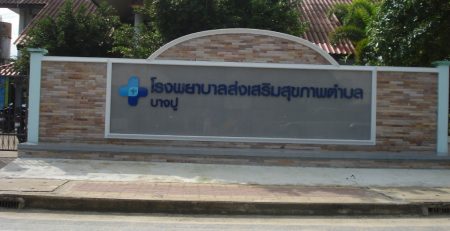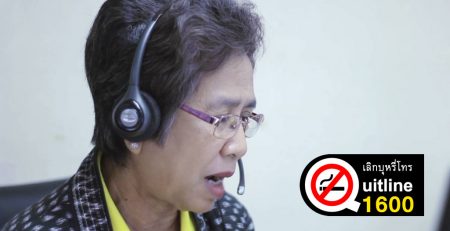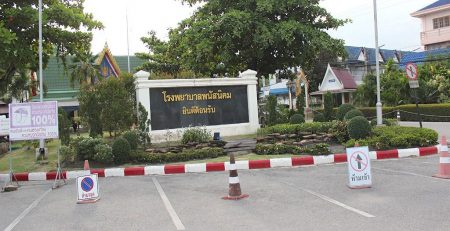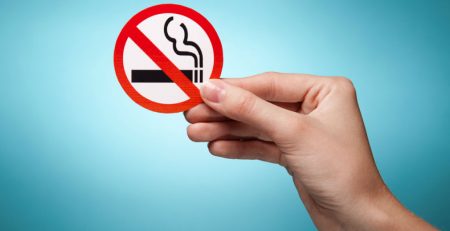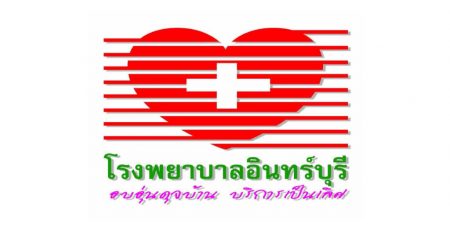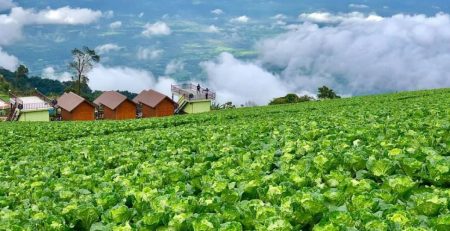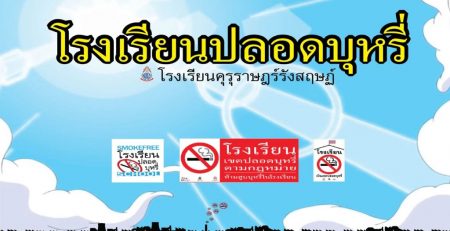Baraku is more dangerous than you think !
What contains Tobacco is dangerous whether it comes in the form of cigarettes or Baraku. Baraku has recently become popular among teenagers and those who enjoy nightlife activities. Smoking Baraku or Hookah is an alternative type of tobacco use, a method of smoking through which smoke is puffed through a waterpipe smoking device. The smoking devise has a bulb bubbler below and has a hose connection for suction. Baraku or Hookah is a traditional Arab form which nowadays has been adapted to feature various flavorings which appeal to young people. Baraku is popular in pubs, bars, and accommodations in Thailand. The most important thing about this smoking form is that people mistakenly believe that: (1) Baraku is less dangerous than cigarettes, and (2) women often believe that smoking Baraku produces a better image than smoking cigarettes. These beliefs are dangerously mistaken.
Baraku contains chemical compounds like nicotine and tar as do cigarettes. When compared, evidence shows that cigarettes contain 1-3 % nicotine while Baraku contains 2-4 % nicotine which shows one major danger of Baraku. While smoking cigarettes, smokers spend 5-7 minutes smoking one roll of cigarette which they puff on an average of 8-12 times. However, Baraku smokers typically spend a longer time smoking per session which often lasts 20 80 minutes and in which they puff smoke 50 200 times. This shows another major danger of Baraku, a high intensity of smoke intake.
International researchers have found that Baraku releases more than one hundred types of toxins, including carbon monoxide, plus nicotine and carcinogens (like nitrosamines) which cause dangerous diseases (such as cancer and cardiovascular disease) and addiction. An interesting comparison of toxicants in Baraku and cigarettes shows that Baraku releases 1.36 1.40 % carbon monoxide while one roll of cigarette releases only 0.41%. When smoking Baraku, smokers will receive tar equal to that in 20 cigarettes, will receive 2 times the carbon monoxide and 3 times the nicotine compared with cigarette smoking.
When tars in Baraku get hot, they are released as mutagens and toxicants. Baraku is a cause of several types of cancers such as lung cancer, mouth cancer and other serious tumors
Dr. Srirat Lapyai, a professor of the department of marketing, the Faculty of Communication Arts, Rangsit University, conducted research on tobacco marketing strategies for Baraku and the behavior of smokers in adolescent groups. Several interesting findings were obtained regarding the behavior of the sampled group of students studying at high schools and universities (783 persons).Some 81% of those students know what Baraku is, 34% of the students were regular Baraku smokers or used to smoke Baraku; 57% knew Baraku via alcohol shops with alcohol shops, pubs and bars the most common places for smoking Baraku.
One worry is that women have a positive attitude toward and are not afraid to try smoking Baraku. Because Baraku comes in fruit flavors, has a good smell and tastes sweet, it is believed that it is less dangerous than cigarettes. Moreover, women believe that Baraku smoking projects a better image than cigarettes smoking. This is a wrong believe. An issue of concern is the trend that many places such as accommodations offer equipment to smoke Baraku, that is, shops in accommodations and alcohol shops. Besides, it is easy to find smoking equipment for Baraku via the internet and retail shops which could provide children and adolescents easy reach to this type of tobacco (Baraku), and Baraku also comes in several appealing flavors to persuade youth to smoke, explained Dr. Srirat.
Dr. Siriwan Pitayarangsarit, Director of the Tobacco Control Research and Knowledge Management Center (TRC), expressed her opinion about the direction needed to prevent Baraku smoking. She views Baraku as a dangerous drug which is under the Thai Tobacco Product Control Act. Yet, there is a gap in controlling the sale of tobacco leaf and smoking equipment. This should be remedied by modifying the regulation to have stronger controls in order to prevent children and adolescents from becoming victims of dangerous toxins in Baraku.



